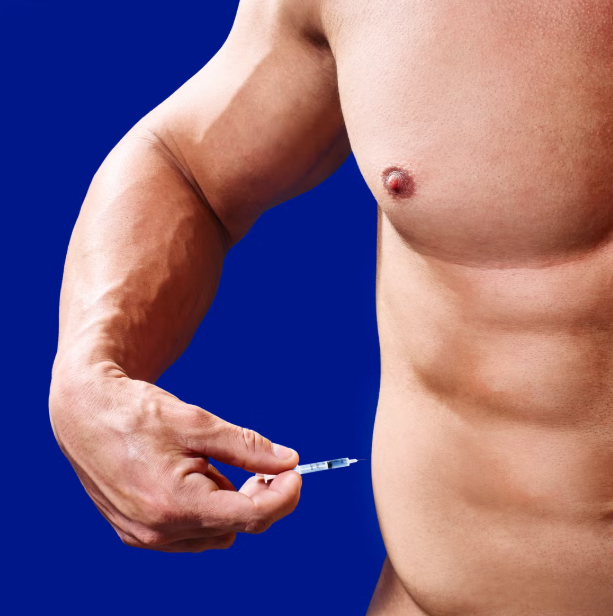TRT – a form of hormone replacement therapy – has surged in popularity in recent years, both in approved medical settings and as a performance-enhancer for some gym goers, despite it being a prescription-only drug in Australia.
Some studies suggest that between 30-40% of men will be affected by low testosterone at some point. Symptoms can be wide-ranging and include fatigue, mood changes, decreased muscle mass and strength, erectile dysfunction and low sex drive – all of which can drastically affect quality of life.
Being overweight can lead to reduced testosterone levels and a condition called metabolic hypogonadism, which affects gonadal function (testes) – so, sperm production and sex hormone function.
Thanks to increased access to and awareness surrounding TRT, it would seem the most logical treatment option in this scenario. However, a new study published in the Journal of Reproductive Biology and Endocrinology has suggested that losing body fat may be just as effective as hormone replacement therapy.
What did the study find?
Researchers studied overweight and obese middle-aged men who had metabolic hypogonadism. They all followed a low-calorie diet and did 20 minutes of daily brisk walking, but were split into three sub-groups: one just followed the diet and walking, another received a weight loss drug alongside the diet and walking, and a third were given TRT transdermally (through the skin).
After two months, all three groups saw improvements in fat loss and testosterone levels. However, while the diet and exercise group experienced modest improvements, and the TRT group experienced a further increase in testosterone levels and increased muscle mass, the fat loss group experienced the most metabolic and hormonal benefits across the board.
Researchers found that, along with significant improvements in weight, waist circumference, BMI and fat mass, this group also experienced larger increases in lean mass and the strongest improvements for erectile dysfunction. They think this is because the weight loss provided the greatest natural testosterone boost.
Why can fat loss help increase testosterone levels?
Why? Reduced fat tissue means reduced aromatase activity (the enzyme produced by fat mass which converts testosterone into oestrogen), which helps to restore hormonal balance, improving metabolic health and sexual function. Whereas in the TRT group, some of the testosterone was converted to oestrogen, likely counteracting some of the positive hormonal effects on sexual function/metabolic balance.
The bottom line
This study demonstrates the powerful potential of lifestyle changes in increasing testosterone levels. That’s certainly not to say TRT doesn’t have a place – everyone is different and may respond to treatments differently. Plus, this study was relatively small, so further longer-term and randomised studies are still needed.
However, these are promising findings at a time when so many men are experiencing – and seeking treatment for – low testosterone levels.
This article originally appeared on Men’s Health UK.
Related:
How to Instantly Boost Your Testosterone
How exercise really affects your testosterone, according to doctors















